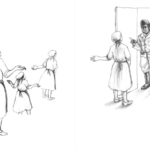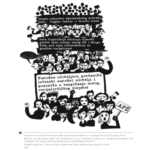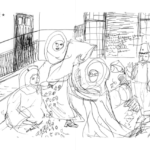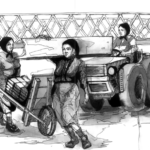
The Slow Rebirth of Militant Feminism in France
In order to ensure autonomy from parts of the movement more reluctant to this recomposition, working-class layers need to increase their capacity to raise a massive movement, and to draw inspiration from and coordinate with movements abroad. With such an internationalist inspiration, and given the unprecedented opportunity that Macron’s presidency is giving to France’s working class to build new solidarities, the women’s movement has the chance to inject anti-capitalist and internationalist perspectives into the struggle, as decisive contributions to the processes of subjectivation that are already in motion.
 Viewpoint Magazine
Viewpoint Magazine




